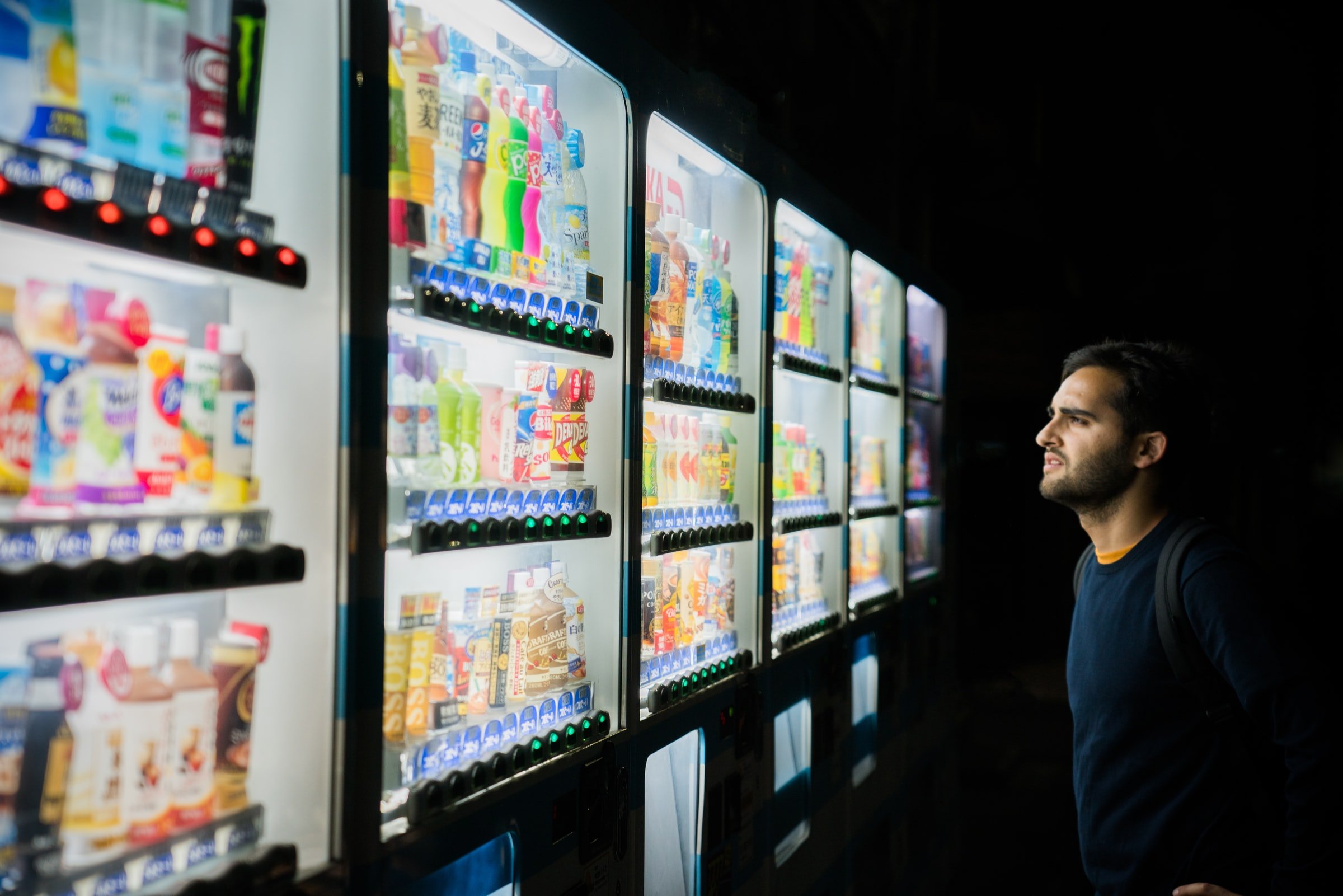On Grocery Store Hacks, How Implants Affect Our Identity, and Happiness
This month's articles range from the candy aisle to the concept of happiness itself (although for some that may be one and the same). From how your local grocery store hacks your brain, to brain implants and identity, we dive deep into consumer psychology, and our search for who we are, and how to say we are happy.
The Reason You Rarely See Windows in Grocery Stores
Have you ever wondered why you can't see outside in grocery stores? No skylights, no windows, and no light that makes it look like midday. This is not by accident. Grocery stores have been engineered to make your brain want to spend as much time inside as possible. From linoleum floors that rattle our carts wheels when we go too fast so that we pay more attention to the shelves, to covered windows so we don't see the world outside, to the candy at the checkout, grocery stores employ psychological tricks to make sure you leave with more than you came for.
Do Brain Implants Change Your Identity?
What is your identity? For some, it's an easy question, but most people would say it's nebulous at best. One thing that can be said is the most pivotal part of what allows us to experience the nebulousness of identity is the lump of tissue residing between our ears. So, what happens when we put something in our brains that weren't originally there? This article from the New Yorker examines the connection between our brain and implants, which are meant to help with everything from seizures, to memory loss. And how a small strip of silicone and electrodes can change the very core of our identity.
The Glossary of Happiness
In this article by the New Yorker, the author looks at happiness. Not just the feeling and the many forms therein, but how different cultures put that feeling into words. The world is vast, and the various peoples that inhabit it have equally vast and sometimes very specific words to put a voice to feeling. Like Ilunga, a Tshiluba word that means to forgive, just not too many times. Or Yagán, “a look between people that expresses unspoken but mutual desire”. The article also looks at the Positive Lexicography Project. A project dedicated to making sure we don’t forget all the many ways to say we are happy.













Dive into the fascinating intersection of psychology and marketing and how to use psychological biases in marketing strategy.